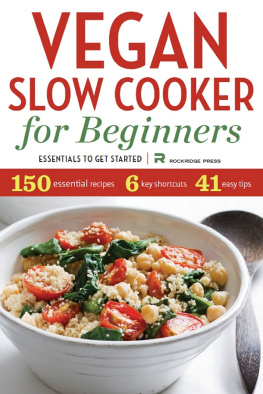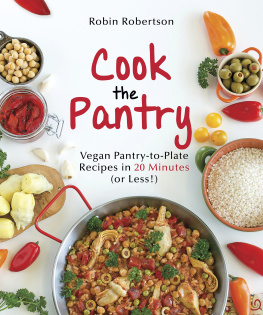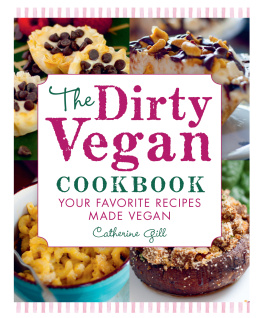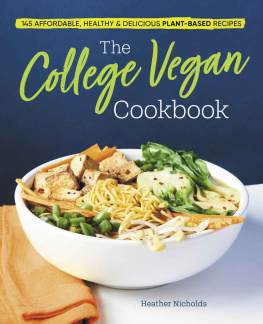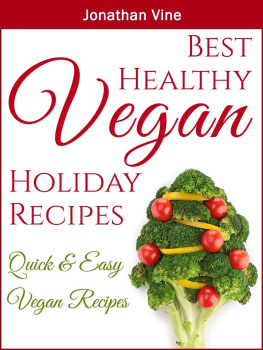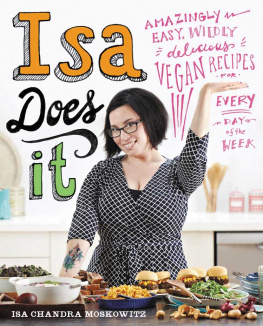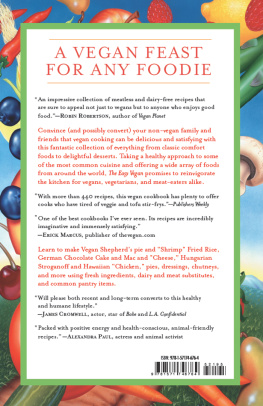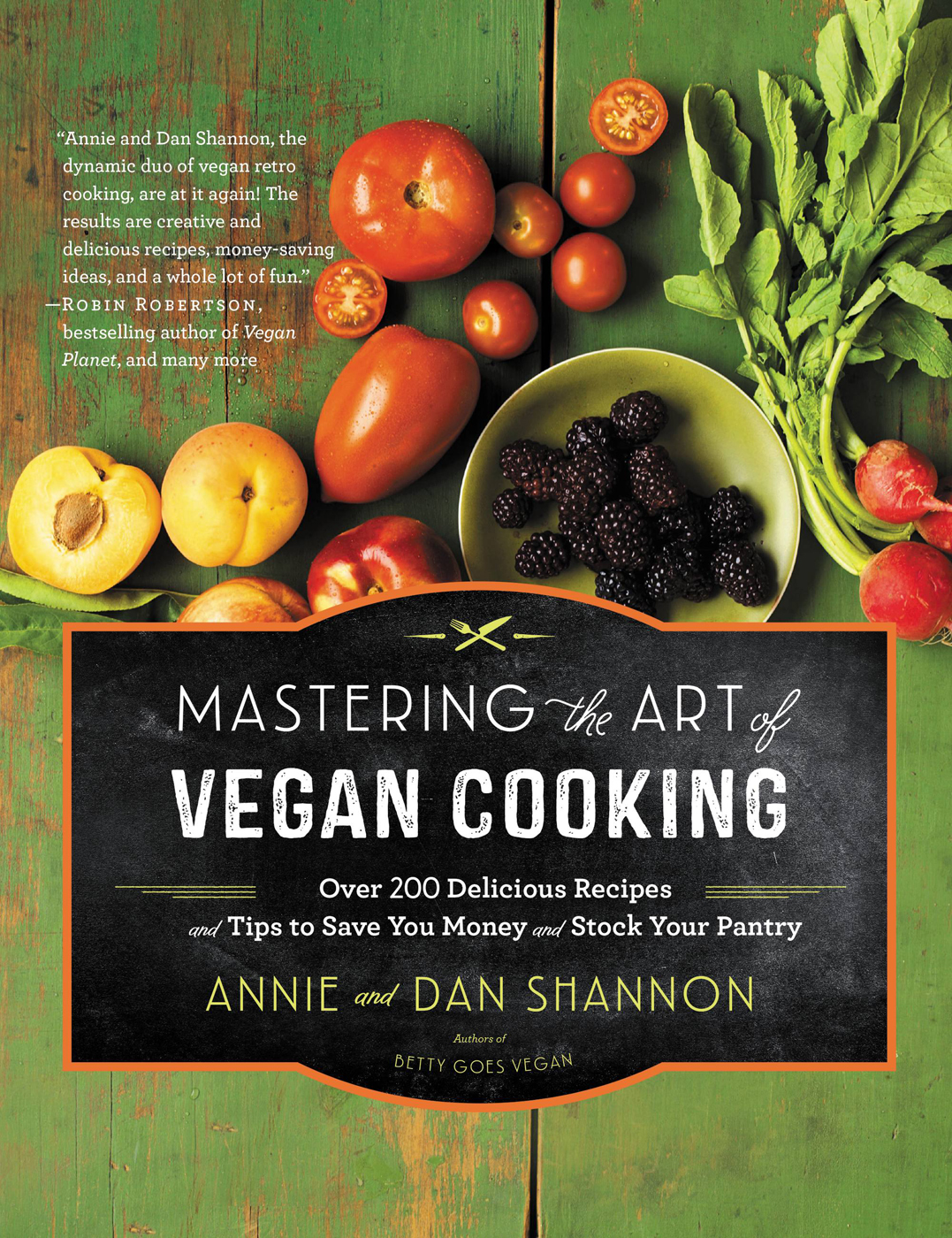T his book started out with a working title: Home Skillet. It was the book I was writing while we prepared for the arrival of our daughter, Piper, and waited for our first book, Betty Goes Vegan, to be released. It was going to be a book about finally growing up in your thirties and moving to the suburbs and what it means to us to be homemakers. It also was a book I was deeply in love with. But on the night of October 26, 2012, we lost our baby.
At the time, I was writing an article for VegNews magazine about veganizing difficult egg recipes like deviled eggs and chocolate souffls. I suddenly found myself in a position where I had a book to rewrite. We had people to call and tell. But there was something more important we needed to do first. See, theres this thing that happens when you find out youre going to be a parent: All your plans for the rest of your life change. Now, we had to figure out how to change them backand I just wasnt up to it.
The process of starting over can sometimes be liberating and full of promise except when you really loved the life you already had. Prior to October 2012, we had fallen deeply in love with our lives; now we had to learn to love a whole new life.
The first step was the acceptance that life just wasnt fair. The injustice of the world might seem like the most obvious observation for any adult but until we each of us faces our own personal tragedy, do any of us really ever give up on the idea that we might be the exception?
After weeks of hiding out in our remote Brooklyn apartment, I got up to make my first cup of caffeinated coffee in years and opened my laptop to write out a list of all the things we were going to have to change to get our life back on track. The house we wanted to buy in the suburbs would have to wait so we could stay closer to our doctors in the city. There were expensive fertility treatments and adoption home study dossiers wed have to pay for now. Suddenly, it became obvious that our new life was going to require us to not only reorganize and reprioritize everything, but to streamline our spending in a major way.
We were hardly alone in this situation. In case you havent been keeping up with the news, were experiencing an economic crisis on a global scale. At the time we lost our baby, people all over the world were facing foreclosures, unemployment, or underemployment. Thats not fair, either. But thats when it hit me that one of the first suggestions almost any modern economist makes to help save money in your household budget is to cut meat out of your dieteven when not forced to due to lack of supply.
We began by mapping out a four-step strategy for reducing waste, spending less, and getting more from our kitchen in a way that wasnt going to feel limiting:
The key to making any lifestyle a success is to make sure its sustainable. That doesnt just mean making it affordableyou also need to enjoy your life. If you feel like youre sacrificing too much, the temptation to cheat or splurge can thwart your progress.
Unfortunately, when most people start cutting back on their groceries, they also start cutting back on the quality of the food theyre eating. Ramen noodles (there are a few vegan brands) and other instant meals can begin to replace the organic pasta in our cabinets and our vegetable crispers empty out.
We were going to have to approach our kitchen differently. No meal is an islandthats a saying, right? Most recipes result in leftover ingredients and servings. Figuring out how to get the most out of what youve already got can be crucial to spending less and reducing the amount of food and money you waste. This became the strategy for how we approached our shopping, cooking, and pretty much everything kitchen related. We focused on getting at least more than one meal out of ingredients that arent considered cheap, like mock meat, vegan cheese, fancy flours, and fresh herbs. And we found new ways to fall back in love with inexpensive items wed started to take for granted like beans, potatoes, rice, and cabbage.
Life doesnt consist solely of making dinner and packing lunches. Special occasions fall like confetti on our calendarsso finding affordable ways to celebrate is also necessary. I looked to the war brides of World War II and their ability to create the ultimate DIY weddings while being limited by rationing protocols. I was inspired by baking tips and recipes that went as far back as the Revolutionary and Civil Wars.
And heres where Betty Crocker, with her perfectly coiffed hair and pleasant smile, entered our lives again. During the Great Depression, Betty Crockers popularity skyrocketed. The women who grew up in the 1920s writing to her for tips on how to transition from wood-burning stoves to electric kitchens were now looking for ways to retain some normalcy in their lives during the devastating economic crisis and World War that defined the 1930s and 40s. Hundreds of thousands of listeners tuned into The Betty Crocker Cooking School of the Air to learn new and creative ways to make do with less.
To quote Betty during her radio show in 1932: Thrift has always been the banner of housewifely skill and these days of financial strain, everyone is trying to avoid waste of every kind. Scraps of vegetable and bits of meat, which in a time of plenty might have been discarded, must return to the table again, to go just a little bit further.



